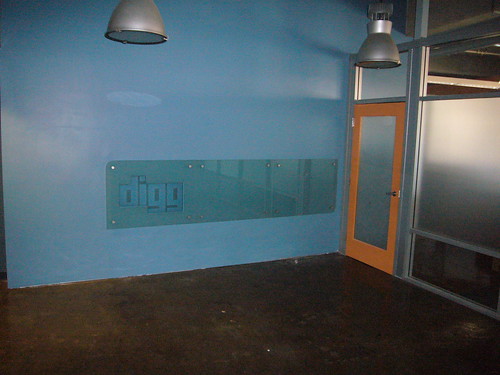UPDATE: As you might have noticed, we’re having some technical issues rolling out the new comments. Please bare with us as we work out the kinks.
UPDATE: We reworked a few things and the comments are now live again.
Today Digg launched it’s redesign of the comment system, which was programmed by yours truly. Daniel has written up a detailed overview of the design decisions so if you’re interested in the design aspects you’ll definitely want to check that out.
There were a few fairly complex technical changes to the comment systems, which I’ll outline and then go into a little detail about.
- We’ve been talking about moving towards a services oriented architecture on and off since I started in February. Steve had coded the API and the decision was made that the new comments system would use Digg’s public API.
- Comment threads would be loaded dynamically using AJAX and JSON.
- All commenting, editing, etc. would happen via AJAX.
The API ended up making the PHP code behind the scenes relatively painless. Each page loads using two small calls; one to figure out how many comments are on a story and another to fetch the first 50 or so comments (we use a fuzzy limit so it’ll just load all of them if there’s, say, 55 comments on a story). Both our local proxy and the comments code use the Services_Digg package we released via PEAR when the API launched. In fact, the entire permalink page is built using the API now, which is pretty neat.
By far the most complex portion of the comments system was how dynamic it was going to be. Threads would be zipping in and out, we’d be creating 90% of the HTML dynamically in the DOM from JSON, posting and editing over AJAX, etc. It was during design that Micah and I also plotted to remove script.aculo.us and replace it with the smaller jQuery library. The entire comment system is, in fact, a series of jQuery plugins.
Probably the coolest, technically speaking, portion of the new comments is the manner in which most of the page is created. No longer do we create static HTML in PHP and send you a huge HTML page. Instead we give you the basics and, via AJAX/JSON, we make requests to the API and dynamically create the DOM using the FlyDOM jQuery plugin. The FlyDOM JSON templates are a stroke of genius if you’re looking at loading JSON dynamically into the DOM. The advantage of this is that initial page loads are much snappier and you can load the threads you wish to read on demand.
I really picked up the whole dynamically created DOM ball and ran with if. If you notice, on the initial page load there aren’t any forms anywhere in the DOM. Those, also, are created dynamically on request. An interesting side effect to this is that there’s about 4x as much JavaScript code on the new comments than there is PHP.
The major technical and design changes of comments should lead to faster load times, less bandwidth being eaten up and, hopefully, a better user experience. I hope you enjoy them and, as always, welcome comments and input.
As Kevin would say, “Digg on!”

